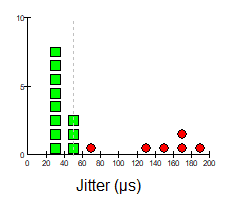In 1936 Alfred Blalock from Vanderbilt University first reported improved symptoms of myasthenia gravis (MG) after the removal of a thymic tumor. Five years later, after moving to Johns Hopkins University, he came up with an idea that would change history. As a curious researcher, Alfred decided to perform thymectomies in patients with MG irrespective of the presence of a thymoma. Three out of six patients showed substantial improvement after thymectomy. Despite this encouraging data, most of the evidence supporting thymectomy remained limited to case reports/series or retrospective studies over the following seven decades.
This was changed when Wolfe GI et al. published the Thymectomy Trial in Non-Thymomatous Myasthenia Gravis Patients Receiving Prednisone Therapy (MGTX) in 2016. The MGTX trial was an NINDS-funded single-blind, randomized, international multi-center trial that compared 126 total patients divided into 2 groups: Thymectomy + alternate-day prednisone and alternate-day prednisone only. Final inclusion criteria were the age of 18-65 years, a serum acetylcholine-receptor–antibody level of more than 1.00 nmol/L (also 0.50 – 0.99 nmol/L were accepted if the diagnosis was confirmed by a positive edrophonium test, abnormal repetitive nerve stimulation, or abnormal single-fiber electromyography), and an MG Foundation of America clinical classification of II to IV. Exclusion criteria were thymoma, previous thymectomy, immunotherapy other than prednisone, pregnancy or lactation, contraindications to glucocorticoids, and substantial medical illness.
The primary outcomes were the average Quantitative MG score (on a scale from 0 to 39), and the average dose of prednisone over 3 years. For the best interest of patients, other therapeutic interventions outside the study protocol were allowed in the later part of the study at the discretion of unblinded neurologists.
After a 3-year study monitoring period, the thymectomy group had a lower average quantitative MG score (6.15 vs 8.99, p<0.001), a lower average alternate-day prednisone dose (32 mg vs 54 mg, p<0.001), were less likely to require for additional immunosuppression (17% vs 48%, p<0.001), and had fewer hospitalizations for MG exacerbations (9% vs 37%, p<0.001).
An erratum to these results was published in 2017 reporting an overestimation of time-weighted prednisone doses. However, it did not affect the overall conclusion of this study. Even though thymectomy became a well-accepted approach for MG, its utility remains controversial in individual subtypes of MG per experts. Regardless, the international consensus guidance for MG management 2020 update recommends that thymectomy should be strongly considered for patients with AChR antibody-positive MG.
Feel free to review the landmark article here!
Check out some relevant imaging to this article from our image base below:
References:
- Wolfe GI, Kaminski HJ, Aban IB, et al. Randomized Trial of Thymectomy in Myasthenia Gravis. N Engl J Med. 2016;375:511–522.
- Randomized Trial of Thymectomy in Myasthenia Gravis. N Engl J Med. 2017;376:2097.
- Evoli A, Meacci E. An update on thymectomy in myasthenia gravis. Expert Rev Neurother. 2019;19:823–833.
- Narayanaswami P, Sanders DB, Wolfe G, et al. International Consensus Guidance for Management of Myasthenia Gravis. Neurology. 2021;96:114–122.





